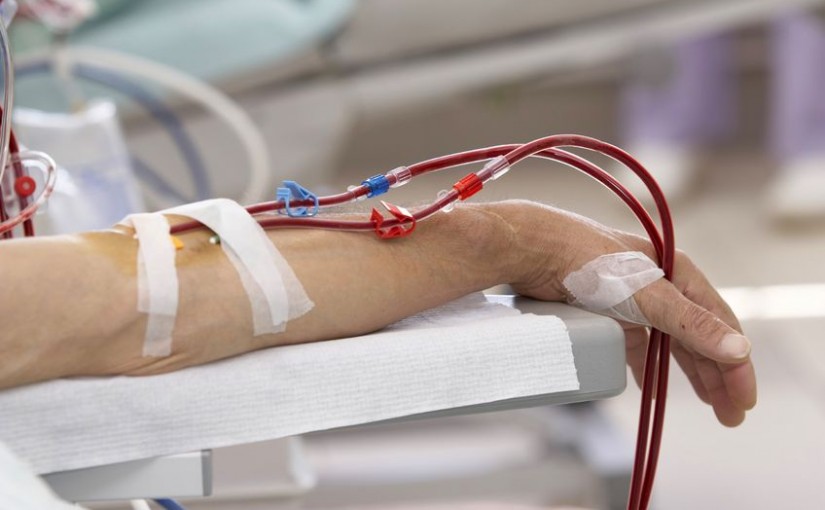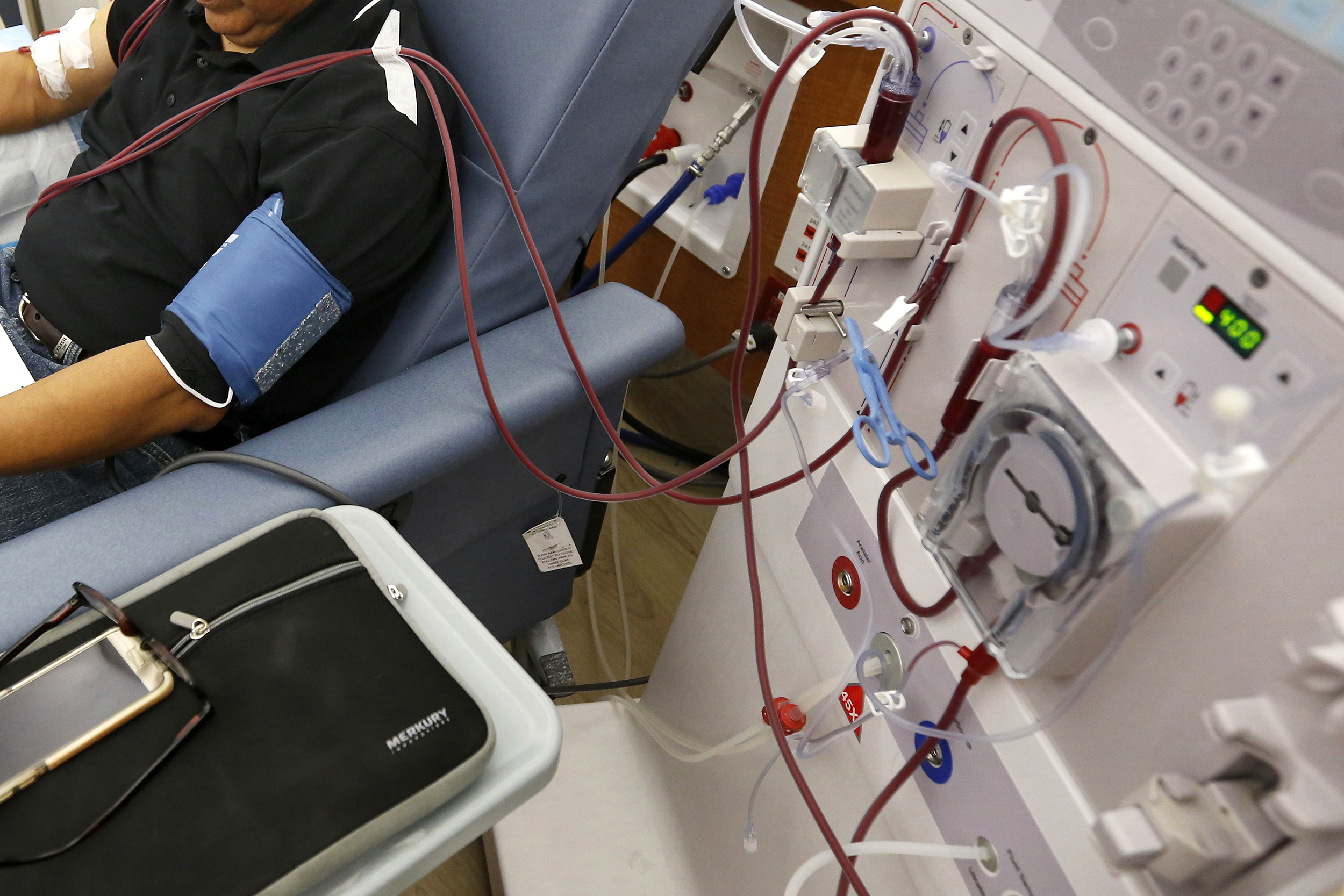Kidney disease is a silent killer that affects millions of people worldwide. It is a progressive disease that, if left untreated, can lead to serious complications and even death. The kidneys are vital organs that perform many important functions in the body, including filtering waste products and excess fluids from the blood, regulating blood pressure, and producing hormones that regulate red blood cells and promote bone health.
When the kidneys are damaged, these functions are compromised, and the body is left vulnerable to a host of health problems. One of the most significant dangers of kidney disease is that it often goes unnoticed until it reaches advanced stages. Symptoms of kidney disease can be subtle and easy to overlook, such as fatigue, weakness, and a loss of appetite. In some cases, there may be no symptoms at all.
This is why it is so important to be aware of the risk factors for kidney disease and to get regular check-ups with a healthcare provider. Risk factors for kidney disease include high blood pressure, diabetes, a family history of kidney disease, and being over the age of 60. People who smoke, are overweight, or have a poor diet are also at an increased risk. It is also important to note that some medications, such as non-steroidal anti-inflammatory drugs (NSAIDs), can also damage the kidneys over time.
Signs and symptoms of chronic kidney disease develop over time if kidney damage progresses slowly. Loss of kidney function can cause a buildup of fluid or body waste or electrolyte problems. Depending on how severe it is, loss of kidney function can cause:
- Nausea Vomiting
- Loss of appetite
- Fatigue and weakness
- Sleep problems
- Urinating more or less
- Decreased mental sharpness
- Muscle cramps
- Swelling of feet and ankles Dry, itchy skin
- High blood pressure (hypertension) that's difficult to control
- Shortness of breath, if fluid builds up in the lungs
- Chest pain, if fluid builds up around the lining of the heart
One of the most significant dangers of kidney disease is that it often goes unnoticed until it reaches advanced stages. Symptoms of kidney disease can be subtle and easy to overlook, such as fatigue, weakness, and a loss of appetite. In some cases, there may be no symptoms at all. This is why it is so important to be aware of the risk factors for kidney disease and to get regular check-ups with a healthcare provider.
Make an appointment with your doctor if you have signs or symptoms of kidney disease. Early detection might help prevent kidney disease from progressing to kidney failure. If you have a medical condition that increases your risk of kidney disease, your doctor may monitor your blood pressure and kidney function with urine and blood tests during office visits. Ask your doctor whether these tests are necessary for you.
The emotional toll of living with kidney disease is often overwhelming. People who have been diagnosed with the disease often feel a sense of hopelessness and despair. They may feel like their life is over and that they will never be able to live a normal life again. They may feel like they are a burden to their loved ones, and they may experience feelings of isolation and loneliness.
The conditions you can develop from progressing kidney disease can be life threatening. These conditions include:
- Anemia: Kidneys produce a hormone called erythropoietin (EPO) which helps the body produce red blood cells. When the kidneys are not functioning properly, the production of EPO is reduced, resulting in anemia.
- Bone disease: Chronic kidney disease can cause a reduction in the production of vitamin D, which can lead to bone disease and an increased risk of fractures.
- Cardiovascular disease: Chronic kidney disease is a major risk factor for cardiovascular disease, such as heart attack and stroke.
- Fluid and electrolyte imbalances: The kidneys are responsible for regulating fluids and electrolytes in the body. When they are not functioning properly, imbalances can occur, leading to symptoms such as swelling, high blood pressure, and heart arrhythmias.
- Gastrointestinal symptoms: Chronic kidney disease can cause a loss of appetite, nausea, and vomiting.
- Pericarditis: Inflammation of the pericardium (the thin sac around the heart)
- Skin problems: Chronic kidney disease can cause itchy skin, dryness, and discoloration.
- Neuropathy: Chronic kidney disease can cause nerve damage, leading to symptoms such as numbness, tingling, or pain in the hands and feet.
- Impaired cognitive function: Chronic kidney disease can cause cognitive function, especially in older adults.
- Metabolic acidosis: Chronic kidney disease can cause an accumulation of acid in the blood, leading to symptoms such as fatigue, weakness, and shortness of breath.
It's important to note that some of these conditions can be prevented or delayed with early detection, management and treatment of the chronic kidney disease. Also, it's important to consult with a healthcare provider for a proper diagnosis and management of the disease.
Prevent, Treat, & Defeat Kidney Disease
Kidney disease is a serious health condition that affects millions of people worldwide. It is a progressive disease that, if left untreated, can lead to serious complications and even death. The good news is that there are many ways to prevent kidney disease from developing in the first place. By taking care of our kidneys, we can help ensure that our bodies continue to function properly and that we can live a healthy and fulfilling life.
Here are some of the best ways to prevent kidney disease:
- Control high blood pressure: High blood pressure is one of the leading causes of kidney disease. By controlling blood pressure, we can help reduce the risk of developing kidney disease. This can be done through lifestyle changes such as eating a healthy diet, exercising regularly, and quitting smoking. Medications may also be prescribed to control blood pressure.
- Manage diabetes: Diabetes is another leading cause of kidney disease. People with diabetes should work closely with their healthcare provider to manage their blood sugar levels and prevent complications. This includes eating a healthy diet, exercising regularly, and taking medications as prescribed.
- Maintain a healthy weight: Being overweight or obese can increase the risk of developing kidney disease. By maintaining a healthy weight, we can help reduce the risk of developing kidney disease. This can be done through a combination of diet and exercise.
- Avoid taking over-the-counter medications: Some over-the-counter medications, such as non-steroidal anti-inflammatory drugs (NSAIDs), can damage the kidneys over time. People who are at risk of developing kidney disease should avoid taking these medications and talk to their healthcare providers about alternatives.
- Get regular check-ups: Regular check-ups with a healthcare provider can help detect kidney disease early. This is particularly important for people who are at risk of developing kidney disease, such as those with high blood pressure, diabetes, or a family history of kidney disease.
- Eat a healthy diet: Eating a healthy diet can help prevent kidney disease. This includes eating foods that are low in salt and sugar, and high in fruits, vegetables, and whole grains.
- Drink enough water: Drinking enough water can help flush out toxins from the body, which can help reduce the risk of developing kidney disease.
If you or a loved one would like professional assistance with treating or preventing CKD, there are special programs dedicated to this struggle. To learn more about these programs, click the blue button below to get started today.




